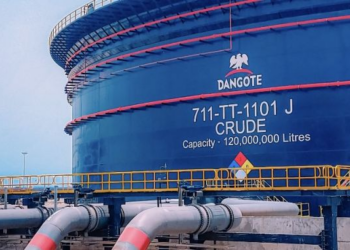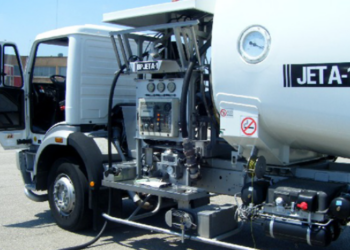Oil marketers under the aegis of the Major Oil Marketers Association of Nigeria (MOMAN) has identified solutions to the high price and scarcity of Jet A1 fuel popularly known as aviation fuel, across the country.
The major marketers have said that the situation can abate if marketers are able to get foreign exchange at decent rates instead of sourcing from the parallel market.
According to NAN, this was made known by the Executive Secretary of MOMAN, Clement Isong, during an interview on Wednesday in Lagos.
Isong noted that a drop in the global oil prices and the adjustment of the international supply of crude to meet demand will help the prices come down to more acceptable levels.
The MOMAN top official also advised the domestic airline operators to change the way they do business to enable them get steady supply of aviation fuel to run their operations, as well as urging them to clear their debts and adopt a pricing formula for procurement of aviation fuel in line with international best practices.
What MOMAN Executive Secretary is saying
Isong advised domestic airline operators to sign binding contracts with oil marketers based on pricing formula rather than running from one marketer to another trying to get products at cheaper rates.
He said, “The rise and fall of oil prices is cyclical. We have been here before and we are hoping that within a short period the international supply of crude will adjust to meet demand and prices will come down to more acceptable levels.
“There is aviation fuel in the country. However, the product is expensive. Many of us who have contracts with international airlines have to keep stocks for them.
“Now, international airlines pay for their products based on a pricing formula, so it is predictable. There is no quarrel on the price. It is Platts plus Premium.
“The Premium is fixed. The Platts, which is a price benchmark service for the oil industry, goes up and down depending on the international market price.”
The executive secretary said the pricing template is transparent and predictable.
He said, “I should also add that we buy the product in forex and the foreign airlines pay in forex. So there is no forex risk.
“For the local airlines, there are two challenges. First of all they don’t like signing binding contracts based on pricing formula. They prefer running from one marketer to another trying to get products at cheaper rates.
“Secondly, many of them are owing. They are owing millions of naira to the industry not just marketers alone. When they finish from one marketer, they run to another one.
“The pricing formula means that you buy over a period of one month a certain quantity of products and the airline must pick that product.
“So when they have agreed, you go and buy that volume and you keep for them but if they don’t agree, you can’t keep that volume for them.’’
While explaining that the airlines had to change the way they did business, Isong further said, “This is what the Group Managing Director of Nigerian National Petroleum Company Ltd., Mele Kyari has asked them to do.
“There are international best practices that they need to adhere to in running their businesses.
“This include a pricing based formula committing to volumes and also clearing their outstanding debts to ensure smooth operations in the sector.
“If they adopt this method, marketers can take the risk of buying products and keeping for them in our tank farms but they need to commit to volume because that is how the business is done.’’
In case you missed it
- Nairametrics had earlier reported that in a meeting brokered by the National Assembly in order to solve the crisis in the aviation sector due to scarcity and high cost of aviation fuel, it was agreed to temporarily allow domestic airline operators to import cheaper fuel.
- The meeting which also had domestic airline operators, NNPC and oil marketers in attendance, agreed to grant license to airline operators to import fuel in order to resolve the current aviation fuel scarcity and price hike in the country.
- The airline operators had earlier threatened that they may withdraw their services if the situation persists.






















